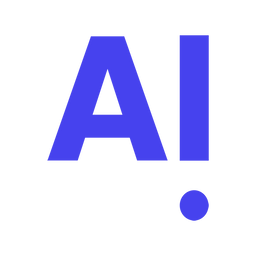Can ChatGPT revolutionize or transform search engines?
Most people probably learned about AI from DeepMind’s AlphaGo in 2016. Since then, we have been expecting AI to change the world significantly. Unfortunately, we went through some kind of AI bubble a few years ago and realized that it might be a long journey to AGI, strong AI.
2022 is the year of generative artificial intelligence. OpenAI blew our minds from DALL-E2 to ChatGPT now. ChatGPT can generate intelligent responses to natural language inputs. It’s stunning! It can answer general questions, code, write stories and poems, suggest itineraries, etc.
It looks similar to the Google search engine. You can find information based on your search term. Google searches the internet for content with intelligence. ChatGPT generates intelligent information based on large-scale learning models.
Google is now worth more than $1 trillion. But could we imagine what appeared to be a search function on web pages a few decades ago when Google was acquired? This search tool has revolutionized all webpage companies and transformed the internet and the world.
AI is the future. It is the final door to knowledge and information. So could ChatGPT or another AGI tool be that tiny Google?
Want to know more about AI? Read our guide below:

What kind of empire does Google have now?
Rome wasn’t built in a day. There are several key features and advantages of Google’s search engine that make it a popular choice for users around the world. For example:
Fast and accurate search results: Google’s search engine is known for providing fast and accurate search results, making it easy for users to find the information they’re looking for.
Relevance: Google’s search algorithms are designed to provide the most relevant results for a given query, making it easier for users to find the information they need.
Personalization: Google’s search engine can personalize search results based on a user’s past search history and other factors, providing a more customized experience.
Voice search: Google’s search engine allows users to search using their voice, making it easier to find information on the go.
Multi-language support: Google’s search engine supports multiple languages, making it accessible worldwide.
Integration with other Google products: Google’s search engine is integrated with other Google products such as Gmail and Google Drive, making it easy for users to access their information from various devices.
Overall, the foundation of Google's search engine is the largest-scale and most comprehensive index of information on the Internet, with extensive built-in intelligence.
It takes time to train the large-scale models to contain all of Google’s indexed information. It takes time to tune them with more accurate, relevant, and personalized capabilities, and it takes time to build up and scale out the infrastructure and serve faster than Google.
It may take months, years, or even a few decades. But it seems the only question is time.
What are the key differences between ChatGPT and Google?
There are several critical differences between ChatGPT and Google’s search engine. One of the main differences is that ChatGPT is a language model that uses machine learning to generate text based on a given input, while Google is a search engine used to find information on the internet. ChatGPT cannot search the internet or provide information on specific topics like Google can.
Another critical difference is that ChatGPT is a single large language model, while Google’s search engine comprises many different technologies and algorithms that work together to provide relevant and accurate search results.
ChatGPT is trained to generate text based on a specific input data set, while Google’s search engine is designed to handle a wide range of queries and provide the most relevant results from billions of web pages.
Additionally, ChatGPT is a tool that can assist with specific tasks, such as generating text or responding to questions. It cannot perform all of the functions that Google’s search engine can.
Google offers a wide range of products and services, including email, cloud storage, and many others, while ChatGPT is focused solely on generating text based on a given input. However, they are based on fundamentally different technologies (index vs. AI), which is the key to revolutionizing the former. Everything else is secondary. That’s a matter of time.
Can we conclude that ChatGPT would replace Google?
Let’s ask Google and ChatGPT this question first. Google follows the “Don’t be evil” motto, and its search results were filled with various opinions on this question.
ChatGPT provided a pre-trained answer below:
Undoubtedly, Google is a fully-fledged search engine and a tech company providing a wide range of products and services, but ChatGPT is a language model just debuting its research preview.
It’s doubtful that ChatGPT or any other language model will replace Google soon. Though ChatGPT may be able to assist with specific tasks, it couldn’t replace the functionality of a giant search engine like Google in a few years.
However, AI is the ultimate solution to knowledge and information. We are thrilled about each milestone. We cannot imagine what will happen with AI in the future and how soon.
It took Twitter and GPT-3 2 years to hit 1 million users. It took Facebook 10 months. It took Copilot 6 months. It took Dall-E and Instagram 2.5 months. But it took ChatGPT only 5 days.
Technically, strong AI, AGI, would revolutionize search engines with comprehensive information and generative knowledge. It would transform the world and dramatically change our lives.
But this may raise another question. For example, could Microsoft Bing replace Google? We knew the answer. Business is another matter. Capital is another critical weight.
Google is also actively developing GPT and chatbots. ChatGPT should inspire Google. Future search engines may be based mainly on intelligent models assisted by indexed information, but Google may remain one of the top tech companies.



 Follow us on LinkedIn
Follow us on LinkedIn



